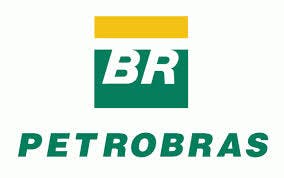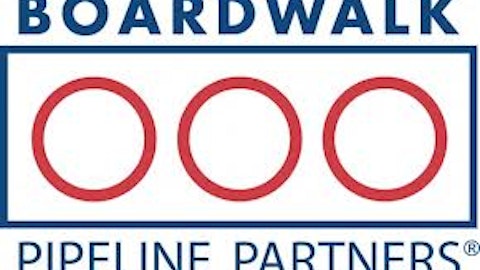Over the last year Petroleo Brasileiro Petrobras SA (ADR) (NYSE:PBR)’s share price has moved like a rollercoaster, oscillating between a high of just over $20 per share and a low of just over $14 per share, to now be down by 15%. Despite the many problems that Petrobras has experienced, I believe that at its current price it represents significant value for long-term risk tolerant investors, and in this article I will explain why.
Why has Petrobras failed to perform for investors?
The key drivers of Petroleo Brasileiro Petrobras SA (ADR) (NYSE:PBR) poor share price performance have been the company’s poor financial performance, declining production, lower crude prices and growing economic and political risk in Brazil. The Brazilian government, Petrobras’ majority owner, has also historically shown a preference for interfering in the company’s operations to the detriment of private investors.
For the first quarter 2013 Petrobras’ revenue remained flat in comparison to the previous quarter, but fell by 2% year on year to $36 billion. Net income also remained flat quarter over quarter, but fell by 26% to $3.8 billion year over year. The key driver of this poor performance was declining production, which quarter on quarter remained flat but fell by 5% to $2.6 billion year over year, coupled with lower crude oil prices.
Another significant driver of the company’s poor performance has been the need to import gasoline to meet government quotas, with that gasoline sold at a loss because of the government cap on fuel prices. But the Brazilian government increased the cap on gasoline prices by 7% and diesel by 5% in January 2013, with an additional 5% increase in diesel prices in March.
This has had a positive impact on Petroleo Brasileiro Petrobras SA (ADR) (NYSE:PBR)’s financial performance by helping to reduce the gap between domestic oil prices and international oil prices. As a result its downstream segment saw its losses for the first quarter fall by 18% year over year to $2.1 billion. This bodes well for Petrobras to be able to boost its profitability and continue to reduce losses in its downstream business.
Disappointingly, Petroleo Brasileiro Petrobras SA (ADR) (NYSE:PBR)’s production has continued to fall on the back of stoppages and natural declines in existing wells, reiterating the need for the company to focus on expanding the production of its pre-salt operations. However, these are difficult reserves to reach due to the depth and complexity of drilling and then pumping the oil to the surface, making it clear that Petrobras will need external help in bringing its pre-salt fields to full production.
But the company was able to raise a record $11 billion in debt through a bond issuing in May 2013. This leaves the Petrobras with substantial cash on hand to fund its capex needs and bodes well for its ability to successfully exploit its existing resources and continue exploration. It is also expected that Petrobras will be able to significantly ramp up production in 2014, with the company having installed three new platforms already in 2013 and with another four to come on line through the remainder of the year. All of which bodes well for increased production and proven reserves.
Petrobras’ performance has also suffered because of the ongoing interference of its majority owner the Brazilian government, with local content rules and regulatory interference affecting the company’s ability to effectively implement projects. However, Petrobras has massive proven reserves of almost 13 billion barrels of oil and exclusive operating rights in Brazil with legislation making Petrobras a partner in any projects initiated by other companies operating in the country.
How cheap is Petrobras in comparison to its peers?
Despite all of these positive catalysts indicating that Petrobras has the potential to meet its ambitious production targets, the key question for investors is just how cheap is the company, particularly in comparison to its peers? The peers I have chosen to compare Petrobras to are Chevron Corporation (NYSE:CVX) given its considerable Latin America operations, meaning it shares many of the same economic and political risks as Petrobras. The other is Exxon Mobil Corporation (NYSE:XOM) the ´king of oil´ which has been one of the strongest and most consistent performers in the industry and a favorite among investors. Like Petrobras, both of these companies also have considerable proven reserves, with Chevron’s 11 billion barrels of oil and Exxon’s 25 billion barrels.
As the table below illustrates, Petrobras’ valuation metrics compare favorably to its major integrated oil and gas peers. It has a particularly low enterprise value to proven reserves ratio of 14, which is lower than Chevron’s ratio of 21 or Exxon’s 16.

Source data: Petrobras, Chevron and Exxon Financial Filings, Yahoo! Finance and Market Watch
Petrobras valuation also appears appealing on a price per flowing barrel basis at $77,000 per barrel of oil and with a price to operating cash flow ratio of 7. Its enterprise value to EBITDA ratio at 7 is not particularly cheap, but I expect that to improve as production increases, leading to higher sales and costs falling further.
In addition, Chevron and Exxon are global oil majors with geographically diverse operations that are subject to a wide range of geo-political risks that change frequently, whereas Petroleo Brasileiro Petrobras SA (ADR) (NYSE:PBR)’s risks are confined predominantly to its Brazilian operations. While these risks at this time are high, given the degree of government intervention, they are at least readily recognizable and quantifiable.
Petrobras also has preferential access to Brazil’s oil reserves, which are believed to be the fifth largest in the world, giving the company substantial development potential to grow its proven reserves. It is also clear that from Chevron and Transocean LTD (NYSE:RIG)’s experience in Brazil that the government will continually seek to protect Petrobras’ preferential possession.
Bottom line
Despite the many problems that Petroleo Brasileiro Petrobras SA (ADR) (NYSE:PBR) has faced over the last two years, particularly with declining production on the back of Brazilian government interference in the company, it now appears cheap on its valuation metrics. This makes Petrobras a compelling play for investors on its proven reserves and long-term development prospects.
Matt Smith has no position in any stocks mentioned. The Motley Fool recommends Chevron and Petroleo Brasileiro (NYSE:PBR) S.A. (ADR).
The article Despite Its Many Problems, Petrobras Represents Value For Investors originally appeared on Fool.com.
Copyright © 1995 – 2013 The Motley Fool, LLC. All rights reserved. The Motley Fool has a disclosure policy.





